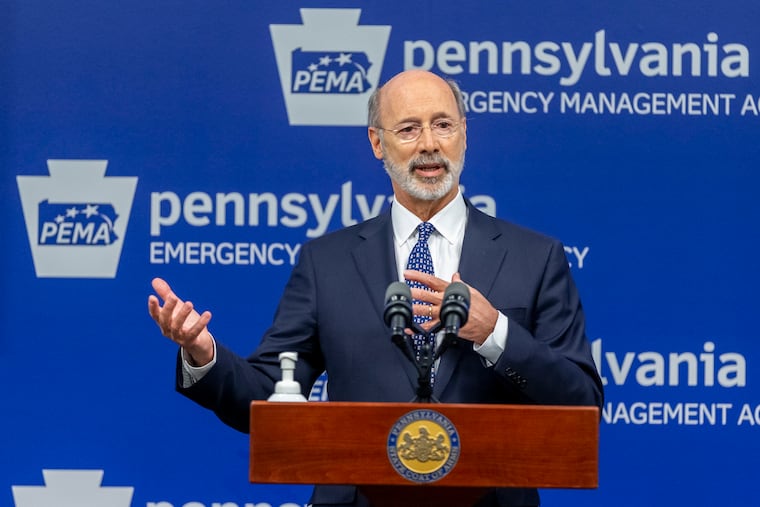Pa.’s eviction moratorium expires Monday. Lawmakers must act now to prevent mass evictions. | Editorial
Pennsylvania needs more time to prevent an avalanche of evictions. It's up to the legislature and the state's Supreme Court to act fast.

Evictions are about to resume in Pennsylvania, creating economic havoc for households and undermining recovery efforts — but there is still time for either the Supreme Court or the legislature to step up and hit the “pause” button on evictions.
The statewide eviction and foreclosure moratorium was first imposed by the state’s Supreme Court in March in the early days of the coronavirus pandemic. When it expired in May, Gov. Tom Wolf extended the moratorium through executive order — first through July 9 and then through Aug. 31.
On Monday, Wolf added to the looming panic when he wrote to members of the state Senate and House that he does not have the authority to further extend the moratorium through executive action and called on the legislature to extend the moratorium.
Wolf didn’t give the legislature much of a heads up. Then again, no state lawmaker should be unaware that this date was coming — or the damage mass evictions would inflict on Pennsylvania families. The problem is, the Republican-controlled General Assembly is not known for acting quickly in a bipartisan fashion to help struggling households. And as the state with the fifth-highest unemployment rate in the country, a lot of households are struggling. The National Low Income Housing Coalition estimates that 25% of tenant households in Pennsylvania are at risk of eviction.
» READ MORE: Evicted without warning: How Philly’s troubled system leaves some tenants blindsided and locked out of their homes.
In Philadelphia, as many 353 tenants could be locked out of their homes in early September if the court order to take over the property was issued before the moratorium. Hundreds of other tenants already had a judgment against them, meaning that their lockout could be scheduled in the upcoming weeks. This board has raised concerns about the accountability and reliability of the private firm that serves the final notice and executes the lockout unaddressed, meaning tenants could be blindsided with little option to remain safe from either homelessness or COVID-19 exposure.
To further complicate things, a federal court ruling about the city’s eviction protection legislation, which barred any step of the eviction process until Aug. 31, is pending. According to this board’s analysis of court records, between July 10 and Aug. 21, landlords filed 349 new landlord-tenant complaints, starting the eviction process despite the moratorium. It is unclear if the Municipal Court will allow these filings to proceed to evictions.
Councilmember Helen Gym, who championed the renter protections bills, said she will ask that landlords be notified that their filings are potentially in violation of city law.
Philadelphia is also working to set up an eviction diversion program that will bring landlords and tenants together outside of court to come to a payment agreement and connect with services.
Given the stakes, Pennsylvania needs more time. A constantly extended eviction moratorium is not a long-term solution; allocating resources to make landlords whole and tenants housed is the only way to deal with this crisis. The legislature can buy that time, and if it won’t, the Pennsylvania Supreme Court should. Mass evictions will erase declines in COVID-19 transmission, hinder recovery, and push the state into a new crisis. The legislature must act now.